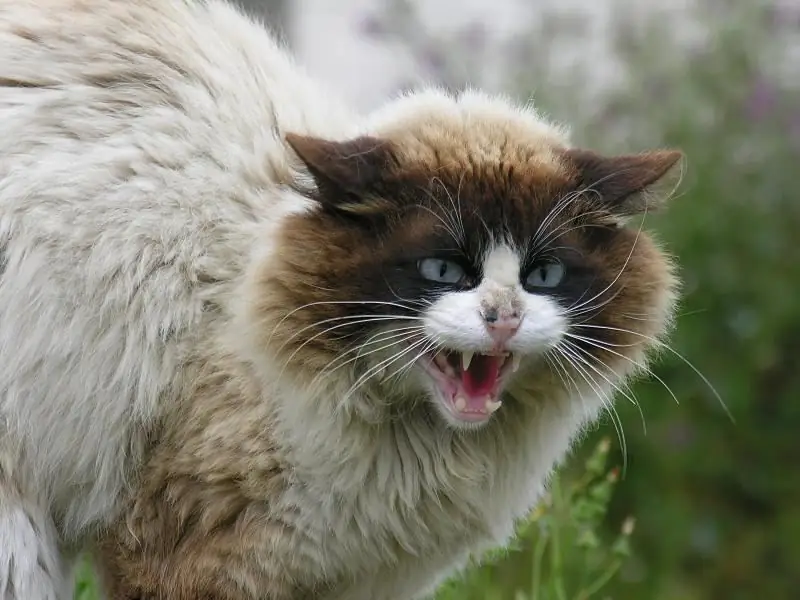
Table of contents:
- Author Bailey Albertson [email protected].
- Public 2024-01-17 22:26.
- Last modified 2025-01-23 12:41.
Scream in the night: why does the cat scream

Knowledgeable people claim that a screaming cat can be heard from 2-3 kilometers away. Constant meowing in cats can have many reasons, and it is important to know them, because both the health, and sometimes the life of the cat, and the well-being of the whole family are at stake, since only a Buddhist monk can endure a continuous cat cry.
Content
- 1 Reasons for the constant meow of a cat
-
2 Causes of meowing, depending on the age of the cat
-
2.1 Meowing kittens
2.1.1 Video: why does the kitten meow constantly
-
2.2 Meowing of adult cats and cats
2.2.1 Video: a cat asks for a cat after sterilization
-
2.3 The meow of an elderly cat
1 Photo gallery: medications that help eliminate excessive vocalization
-
- 3 When you need to urgently contact the veterinarian
- 4 Reviews
Causes of the constant meow of a cat
To eliminate the problem of constant meowing, or excessive vocalization, it is necessary to accurately determine its cause. In cases where a cat has been living in a family for a long time, this is not difficult, since all the features of its behavior are known. The reasons can be different:
- pedigree tendency - some cat breeds, for example, Siamese and Abyssinian cats, like to "talk" more than others;
- situational conditioning - in a number of situations, a cat attracts a person's attention, for example, when it cannot open the door, the tray is not cleaned, there is no water in the bowl - very often this is how the cat communicates and denotes an existing external problem;
-
character traits and features of raising a particular cat:
- the cat may not have enough communication - you should definitely pay attention to the cat, play with it, talk, caress;
-
the cat can be overly impressionable - if there have been any changes in the way of life, for example, moving, having a new pet, changing the owner, the cat may start to get stressed; you should often communicate with the cat, take care of her, and her anxiety will pass;

White cat screams It is imperative to clarify the reason for the constant meow of cats.
- she does not tolerate loneliness - the cat can start screaming, remaining alone for a long time, it is better, of course, not to leave her alone, but as a compromise, it is worth offering her more toys or equipping a bed on the windowsill where she could look at the birds (the same the aquarium also has an effect);
- requires food after hours - in this case, you should not follow the lead of the cat, especially when she screams loudly and demanding, so as not to reinforce the undesirable behavior model in the pet; food can be put when the cat calms down or if she asks quietly;
- the cat is nocturnal - it is natural in the wild, but sometimes the cat tries to involve the owner in its nightlife, demanding attention and emitting screams, in this case, the cat should not be allowed to get enough sleep during the day, physically load it with the help of games to a state of fatigue and feed abundantly at night - a tired and well-fed cat will fall asleep and will not bother anyone at night;
- age physiological characteristics - kittens, adult cats and cats, as well as older animals usually have different reasons for excessive vocalization due to age characteristics;
-
painful conditions - the cat may meow due to illness, excessive vocalization may be caused by:
- the development of an infectious disease (viral leukemia, cryptococcosis, feline panleukopenia, rabies);
- diseases of the digestive system (constipation, helminthic invasions);
- diseases of the nervous system (bacterial meningitis, epilepsy);
- some types of poisoning (paracetamol, organophosphorus compounds, smoke, lead, carbamates);
- endocrine system diseases (insulinoma, pheochromocytoma, hypoglycemia);
- allergic and anaphylactic reactions;
- pathologies of the vestibular apparatus;
- eclampsia;
- oncological diseases (ovarian cancer, feline lymphosarcoma);
- heatstroke;
- other conditions.
Causes of meowing, depending on the age of the cat
The reasons leading to overexposure to vocalization differ in different age categories of cats.
Meowing kittens
Fluffy babies do not yet have autonomy and need constant attention first from the mother-cat, and then from the new owner. Therefore, the reasons for meowing kittens are usually:
- stress - kittens can hardly tolerate moving to the owner, the absence of a mother-cat, a change in their usual environment, getting to know other pets, in order for a kitten's anxiety to go away, the owner's attention and care and, of course, time are required;
-
hunger:
-
the kitten has an accelerated metabolism and growing needs for food, so he can remain hungry if the portions of food allocated to him do not have time to "grow up" after him;

The kitten sits near the bowl A growing kitten needs a lot of food
- too long interval between feedings;
- if there are several kittens, the weakest or smallest kitten may not have enough food;
- a very small kitten, recently taken away from its mother and brought to a new home, may not be able to eat from a bowl;
-
- dangerous situation - kittens are very mobile and master the territory; the kitten can fall somewhere, get stuck, catch on - and in these cases he usually squeaks, calling for help;
- lack of attention - the kitten may meow, wanting play and affection.
Video: why the kitten meows constantly
Meowing of adult cats and cats
The constant meowing of adult cats and cats is usually closely related to reproductive function.
Heat in cats happens several times a year, accompanied by an active sexual desire. The cat's character changes, it rushes to the street, can show aggression, rolls on the floor, lifts the back of the body and emits a loud low meow. During estrus, cats secrete pheromones that affect cats, and cats also scream and rage, and also mark their territory. Therefore, if the animal is not involved in breeding, it should be castrated. Temporarily, the situation can be saved by hormonal drugs that can interrupt estrus:
- Gestrenol: up to 5 kg of the cat's weight - 4 drops, 6-10 kg - 5-8 drops; drip on the nose or treat;
- Stop Intimacy: 9 drops a day for 5-7 days, but no later than the 3rd day from the onset of estrus.
If the cat is breeding, but for some reason does not fit in this heat, you can use sedative (sedative) drugs for cats (Bach drops, Fospasim). From non-drug methods, one can single out a reduction in the diet, active games with a cat until it reaches a feeling of fatigue.
In addition, in some cases, after sterilization (castration), reproductive behavior with vocalization persists, although it is much less pronounced. This is due to the fact that in the absence of the gonads, the function of the hypothalamic-pituitary system is preserved. In this case, sedatives will help (Fospasim, Cat Bayun), in the future, spontaneous termination of such conditions is possible. To prevent their appearance, sterilization is recommended to be carried out a week after the end of estrus. The most reliable prevention of such violations will be to sterilize the cat before the first estrus.
During pregnancy, the cat feels a lot of stress as its physical condition changes and the animal feels discomfort. If the meowing that appears during pregnancy accompanies a deterioration in the cat's well-being, a decrease in appetite, problems with stool, then a veterinarian consultation is necessary.
Video: a cat asks for a cat after sterilization
Meowing of an elderly cat
With age, cats, like humans, become more emotional and less stressful, so the cat can become more "talkative". In addition, some cats develop age-related cognitive dysfunction, which manifests itself in disorientation of the cat, which also leads to meowing, which is more pronounced at night, since disorientation worries the cat more at night than during the day. The solution to this problem is to prescribe sedatives after a veterinarian examination and rule out other causes of this behavior.
Photo gallery: drugs that help eliminate excessive vocalization
-

Packaging of the drug Gestrenol - Gestrenol is effective at stopping heat, but can cause ovarian cysts and tumors, like all hormonal drugs
-

Packaging of the drug Bach drops - Sedatives allow the cat to adapt more quickly to changes.
-

Cat Baiyun - Sedatives Kot Bayun can be used from 10 months of age
-

Packaging of the drug Sex Barrier - Sex Barrier is a hormonal drug that should not be used in breeding animals
When you need to urgently see a veterinarian
Urgent veterinarian consultation is necessary when constant meowing is combined with other manifestations that indicate a cat's health problems:
- nausea, vomiting;
- general oppression;
- stool disorder (diarrhea, constipation);
- fever;
- decreased appetite;
- other signs.
This is how the decompensation of latent chronic diseases, lethal infections of cats, as well as dangerous poisoning can begin. By paying attention in time to the cat's meow and clarifying its cause, a person can save her life.
Reviews
The constant meowing of cats is common and has different causes, for example, the cat may have health problems or need human help. If excessive vocalization occurs when the reproductive function is activated, then hormonal and sedative drugs are used. If the animal is not involved in breeding, it should be neutered. Constant meowing in older pets also requires the appointment of sedatives after excluding other existing causes that can negatively affect the cat's health.
Recommended:
How To Train A Cat Or Cat To A Scratching Post, Including In The Form Of A House: Features Of Training Kittens And Adult Animals, Recommendations And Reviews
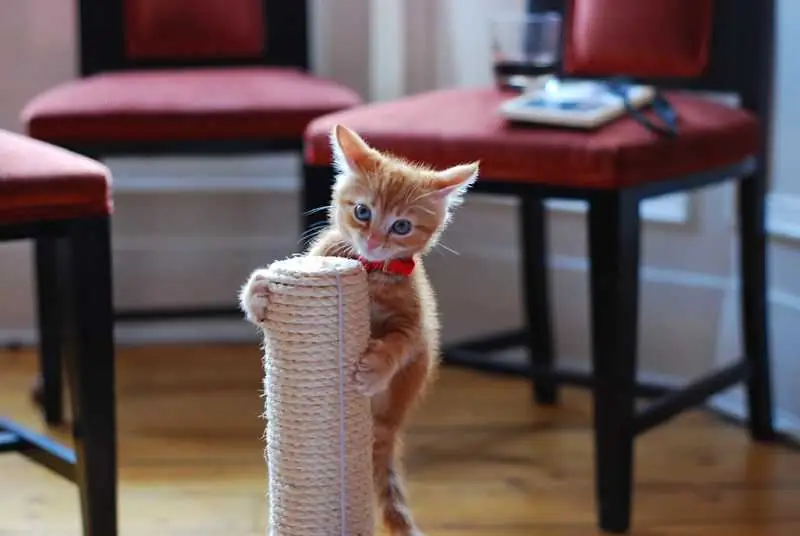
Why cats need to sharpen their claws. How to draw your pet's attention to a device. What to do if your cat doesn't want to use the scratching post
A Cat Or A Cat Pees With Blood: The Reasons For The Appearance Of Blood Urine In Kittens And Adult Animals, With What It May Be Connected, How To Treat
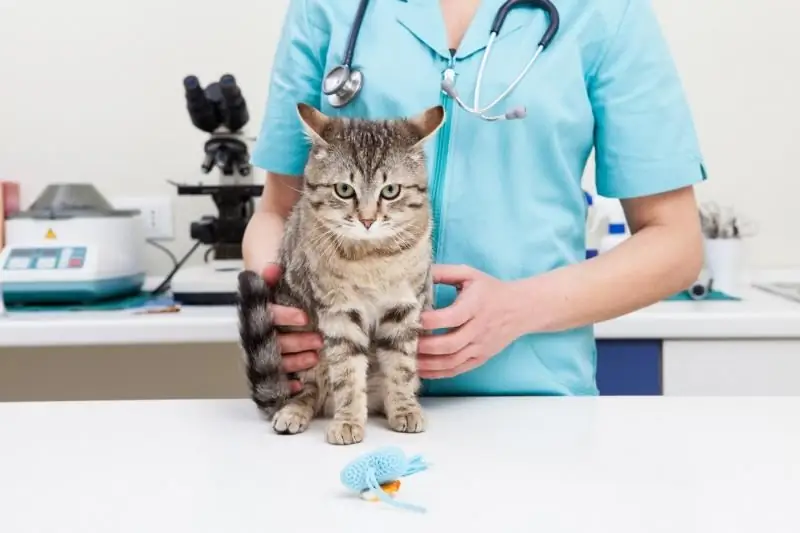
What does an impurity of blood in urine look like in a cat, types of hematuria, causes, list of diseases, diagnostic methods, first aid measures, prevention
A Cat Or A Cat Vomits With White Foam: The Reasons For Such Vomiting In Kittens And Adult Animals, Diagnosis And Treatment, Recommendations Of Veterinarians
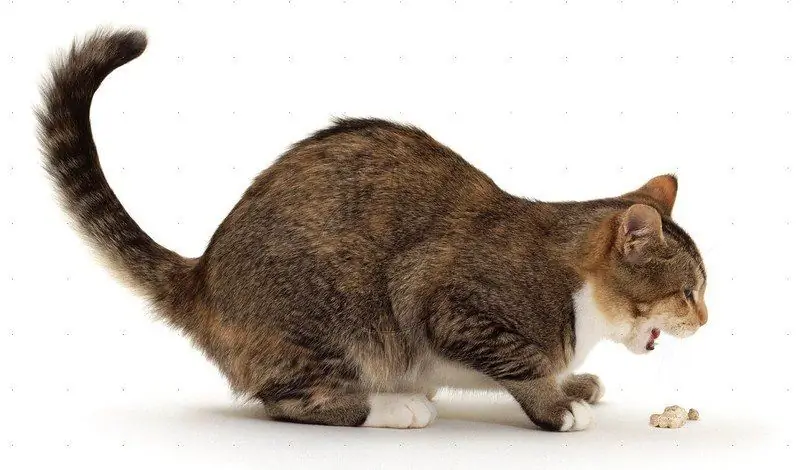
Vomiting of white foam in cats, what can be caused. Additional examination methods for diagnosis. First aid, treatment. Preparations for the prevention of vomiting
How To Wean A Cat And A Cat To Tear Wallpaper And Furniture, Features Of Weaning Kittens And Adult Animals, Useful Tips And Tricks, Reviews
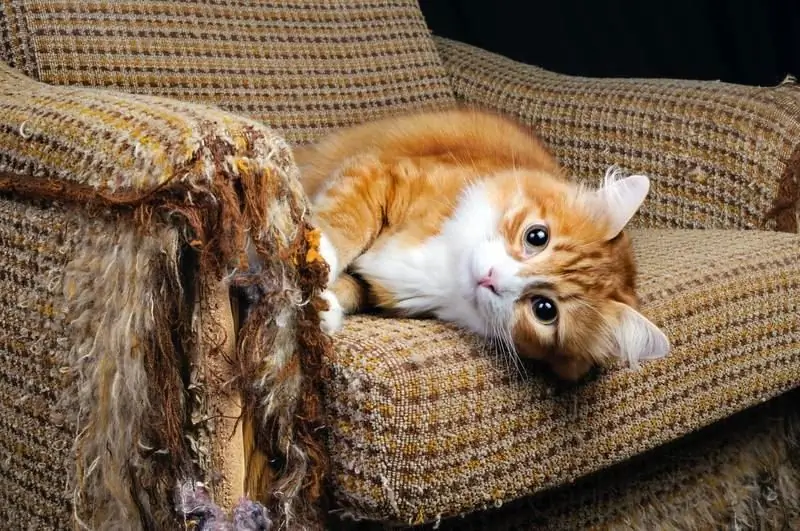
Why does a cat tear wallpaper and furniture? How to prevent damage to property. What to do if you can't wean your cat
Whiskers In Cats And Cats: What Are They Called Correctly And Why They Are Needed, What Will Happen If You Cut Them And Why They Fall Out Or Become Brittle
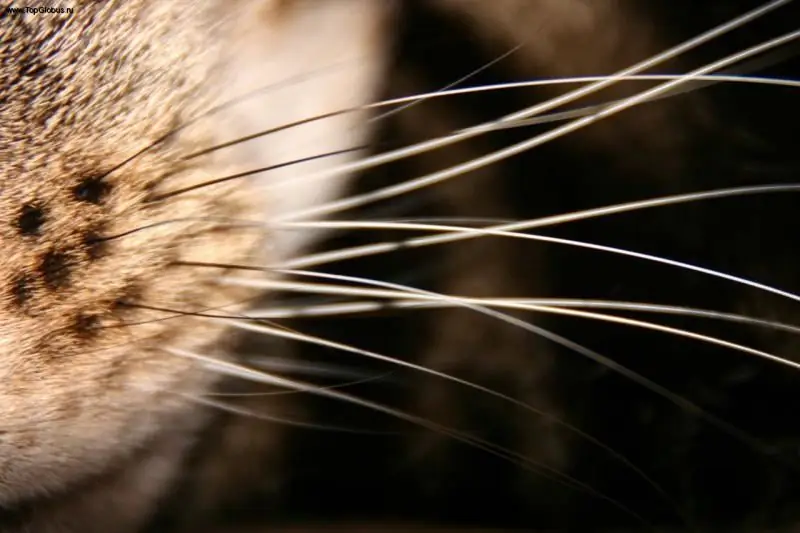
Features of the structure of the mustache in cats. What are they called and where they are located. What functions do they perform. What problems can a cat with a mustache have? Reviews
